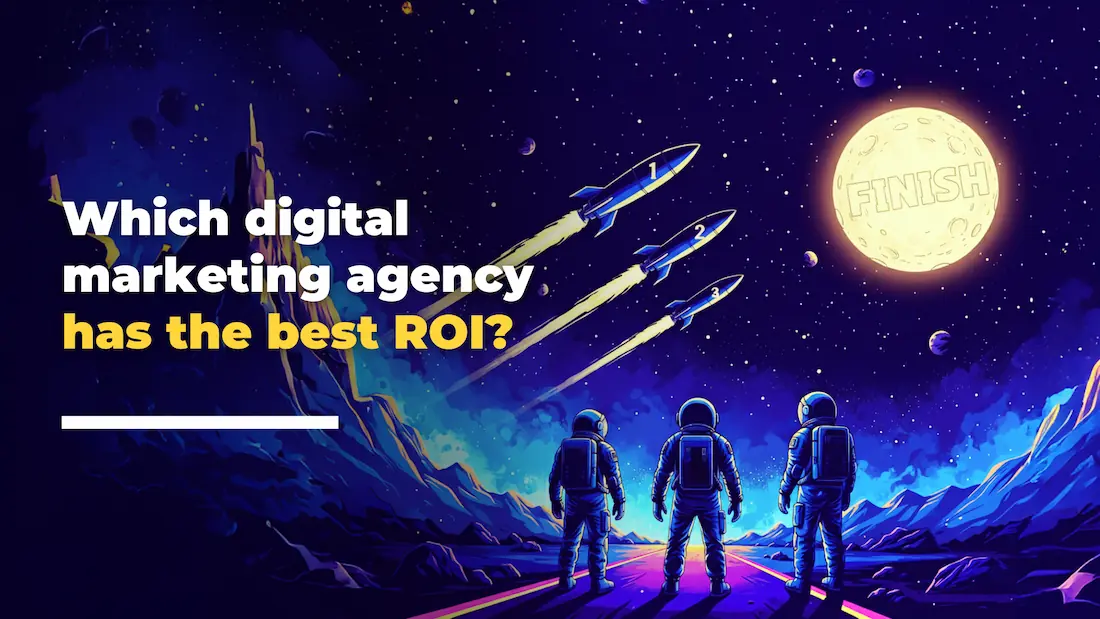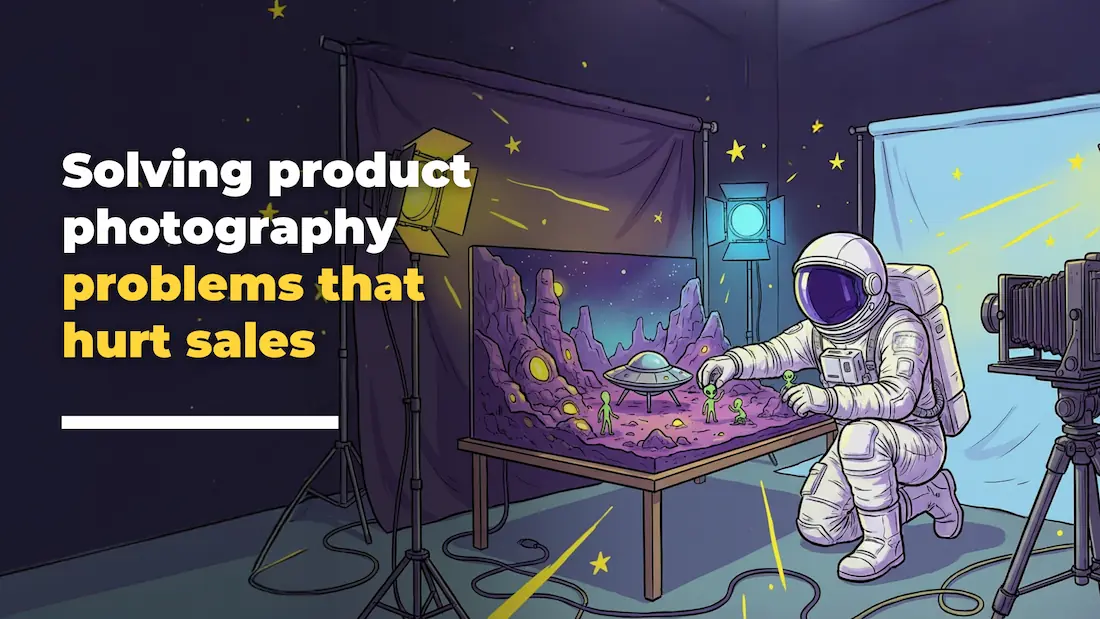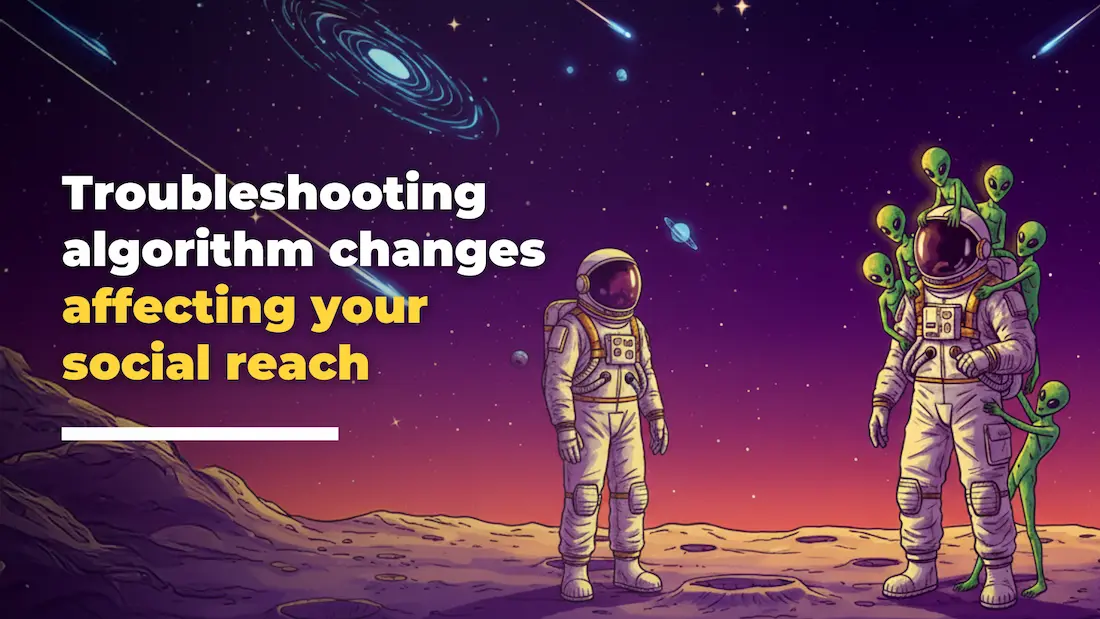It’s the single most important question a small business owner can ask: “Which digital marketing agency will give me the best return on my investment (ROI)?”
You’ve likely typed some version of this into Google, only to be flooded with a sea of agencies all claiming to be “#1,” all showing off flashy client logos, and all promising you the moon. It’s overwhelming. You’re rightfully terrified of getting locked into a 12-month contract that drains your budget and delivers nothing but vanity metrics and excuses.
You deserve a better answer.
As an agency that works with founders every day, we’ll let you in on a secret: the agency with the “best ROI” doesn’t exist. The question itself is flawed.
The right question is: “Which digital marketing agency is the right strategic partner to deliver the best ROI for my specific business?”
ROI isn’t a universal metric. A 3x return might be incredible for a high-margin business but a disaster for a low-margin one. The “best” agency isn’t the one with the biggest portfolio; it’s the one that understands this distinction. They replace confusion with a clear strategic process tailored to you.
To help you find that partner, we’ve created a litmus test—five things that the highest-ROI agencies do differently.
1. They Redefine the Conversation from “Activities” to “Outcomes”
A low-ROI agency sells a list of deliverables. Their proposals are filled with “activities” like:
- 12 social media posts per month
- 2 blog posts of 1,000 words
- SEO monitoring
This approach focuses on their effort, not your results.
A high-ROI agency, a true partner, flips the conversation. They focus on business outcomes. Their proposals and conversations are about:
- Reducing your Customer Acquisition Cost (CAC)
- Increasing the Lifetime Value (LTV) of your customers
- Achieving a target Cost Per Qualified Lead (CPQL)
- Growing qualified demo requests by 20% quarter-over-quarter
What to look for: Find an agency that is more interested in discussing your business challenges and goals than in selling you a pre-packaged set of services.
2. They Insist on a Deep Understanding of Your Business Model
A low-ROI agency will apply the same generic template to your business that they use for everyone else. They won’t ask about your profit margins, your sales cycle, or the operational costs of delivering your service.
A high-ROI agency knows that they cannot possibly calculate a return if they don’t understand the “investment” part of the equation. They will act like a business consultant before they ever act like a marketer. They will ask you tough questions like:
- “What is the average lifetime value of a customer?”
- “What are your gross margins on your core service?”
- “What is your current sales team’s closing rate on leads?”
These questions might feel invasive, but they are the hallmark of a partner who is genuinely committed to generating a profit for you, not just billing you.
What to look for: The right agency will be just as focused on your business fundamentals as they are on marketing tactics. Their onboarding process should feel like a deep strategic dive, not a simple kickoff call.
3. Their Reporting Connects Marketing Metrics to Revenue
A low-ROI agency hides behind “vanity metrics.” They send you fluffy reports filled with charts showing increases in:
- Impressions
- Website Traffic
- Likes and Follows
While these numbers aren’t useless, they don’t pay the bills.
A high-ROI agency provides reporting that tells a financial story. They connect their marketing efforts directly to revenue. Their reports answer questions like:
- “We spent $X on Google Ads, which generated Y qualified leads, resulting in $Z in new revenue.”
- “Our SEO content strategy led to a 50% increase in demo requests from organic search, which represents a pipeline value of $XX.”
What to look for: Ask to see a sample report. Look for a clear connection between marketing spend and business results. They should be talking about goals, conversions, and cost-per-acquisition in their reporting.
4. They are Transparent About What They Don’t Do
The “full-service” agency model can be a trap. Many agencies claim to be experts at everything from TikTok to direct mail, but in reality, they are masters of none.
A high-ROI agency is confident and transparent about its core competencies. They have a well-defined Ideal Customer Profile (ICP) of their own. They’ll say things like:
- “We are the best in the world at generating leads for B2B businesses, but we don’t do e-commerce.”
- “Our expertise is in organic SEO and content marketing; we partner with another agency for complex paid advertising campaigns.”
This honesty is a sign of a mature, confident partner, not a weak one.
What to look for: An agency that is proud of its specialization. A partner who is willing to say “no” to work that falls outside their area of expertise is one you can trust.
5. Their Case Studies Show Business Results, Not Just Pretty Pictures
A low-ROI agency’s case studies are all about the visual “before and after.” They show a screenshot of an old, ugly website next to their new, beautiful one.
A high-ROI agency’s case studies are about business transformation. They tell a story with numbers, such as:
- “How we helped a local Vancouver contractor decrease their cost-per-lead by 40% while increasing lead volume by 200%.”
- “The content strategy that doubled organic traffic and tripled inbound demo requests for a B2B SaaS client in 9 months.”
What to look for: Look past the design and read the results. The heroes of their case studies should be their clients’ business metrics, not their own creative work.
Choosing a Partner, Not a Vendor
Finding an agency that delivers the best ROI has very little to do with their awards or their client list. It has everything to do with finding a partner that operates as an extension of your own business.
They are the ones who obsess over your metrics, challenge your assumptions, and are fundamentally committed to a clear, strategic process that generates more revenue than it costs. When you find that partner, you’ve found your best ROI.
Ready to have a conversation about a marketing strategy that focuses on your bottom line? Let’s talk about the outcomes that matter to you.





